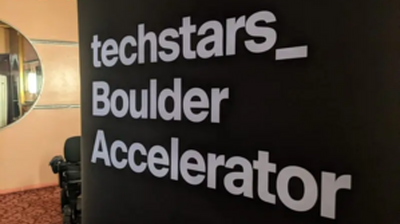Technology
Artificial intelligence takes center stage at Denver’s inaugural DenAI Summit
As the largest city in a state that passed the nation’s first law regulating the potential impact of artificial intelligence on consumers last May, Denver took a different step.
It went all in to welcome AI startups, vendors and tech companies at Thursday’s inaugural DenAI Summit, which included conversations with LinkedIn founder Reid Hoffman and former Google CEO Eric Schmidt.
“This is in the blood of Denver and in Colorado. We are fundamentally a place that believes in innovation, believes in entrepreneurship, the spirit of the Old West,” Denver Mayor Mike Johnston told a good-size crowd in one of the ballrooms Thursday at the Colorado Convention Center. “We want to show what the possibilities are and how we can both pursue those possibilities and do it in a responsible way at the same time.”

Responsible AI and the impact of the newer generative AI on society was mentioned throughout the day, but unlike the emphasis on consumer harm lawmakers and consumer advocates warned of when Senate Bill 205 passed in May, DenAI was on the opportunity and the potential of how the tech can help cities and companies take care of mundane tasks.
“We’d like to make our permitting system work faster in Denver. Do we have a partner that could help us do that? We’d like to make traffic run more smoothly in Denver. Is there programming for signal systems that are more efficient than ones that we have now?” Johnston said. “Those are all very concrete, very practical problems the city faces every day that we think information and AI can make easier.”
Presenter CivCheck in Boston uses an AI assistant to help applicants avoid delays with city permits. Many delays are due to incomplete or noncompliant forms, which requires city staff to go back and forth with the applicant. This leads to backlogs and delays of weeks or months, said Dheekshita Kumar, CivCheck’s co-founder.
“Imagine a world where … you are basically guaranteed to get your permit the very first time you submit,” Kumar said. “In that world, we could actually get permits in days and cities would be able to build the infrastructure that they need at the rate at which they need it.”
And this isn’t just an idea or dream, she added. CivCheck worked with the city of Honolulu and reduced the time it takes for city reviews by 70%.
“What that means is that residential reviews that were taking 60 to 90 minutes were now taking under 15 to 20 minutes,” she said. “We were essentially quadrupling the throughput of the city.”
☀️ READ MORE
AI is growing fast. Here’s how Colorado is trying to keep up.
AI’s new eyes in the sky helping Colorado get a jump as wildfires spark every few hours
What’s Working: Colorado top-paying and lowest-paying jobs
Concerns about how big Technology companies treat consumer data — and how AI systems that decide who gets an apartment, a job or insurance can hide discrimination — were the imPetus for legislation popping up all over the country, including Colorado’s new law that is facing revisions. While DenAI didn’t dwell on those issues, they weren’t entirely ignored.
“It’s important to remember that there is so much excitement in this room about AI but the vast majority of Aericans are still learning what AI is and potentially have some hesitancy about how AI can be really helping them,” said Liz Giorgi, cofounder of e-commerce studio service Soona in Denver, and moderator on using AI to empower people. “One place that I think there is a real likelihood that our citizens don’t know that there is real AI driving their outcomes is around their housing, social services and other essential needs.”
In those cases, said Amina Al Sherif, Google’s generative AI lead for its public sector group, “the goal is to make sure that we make proper disclaimers and educate (and) enable end users and citizens to be able to understand that AI is present.”
Hoffman said the future shouldn’t be decided by just “technologists.” But sometimes, it’s the tech companies that push the world to move forward.
“Too often, the discussion is litigating the past. And the question is what should the shape of the future be,” said Hoffman, who sold LinkedIn to Microsoft in 2016. “If England hadn’t embraced the loom and said, ‘No, it’s only going to be hand weavers,’ I’m not sure you’d ultimately get to a middle class. Now we have better tools in modern times to help with weaver equivalents but we need to get to that future.”
Schmidt, former chair and CEO of Google, said that while he is worried about the misuse of AI in things like automatic weapons, he has a simple solution.
“Unplug it,” he said. “It takes power. There is a switch.”
His recommendation to the city was more upbeat.
“I would embrace entrepreneurship,” he said. “You forget that the most valuable companies in America today were all founded by entrepreneurs 20, 30 years ago, who were impossibly young. And so why don’t you just organize Denver to have all those people here in Denver, it’s a great place.”
-

 Technology3h ago
Technology3h agoThere Is a Solution to AI’s Existential Risk Problem
-

 Technology5h ago
Technology5h agoUS pushes to break up Google, calls for Chrome sell-off in major antitrust move | The Express Tribune
-

 Technology9h ago
Technology9h agoPublic health surveillance, from social media to sewage, spots disease outbreaks early to stop them fast
-

 Technology11h ago
Technology11h agoTikTok, PTA host youth safety summit in Pakistan | The Express Tribune
-

 Technology14h ago
Technology14h agoWhy a Technocracy Fails Young People
-

 Technology1d ago
Technology1d agoTransplanting insulin-making cells to treat Type 1 diabetes is challenging − but stem cells offer a potential improvement
-

 Technology1d ago
Technology1d agoJapan's $26 billion deep sea discovery sparks serious environmental concerns | The Express Tribune
-

 Technology1d ago
Technology1d agoShould I worry about mold growing in my home?



























